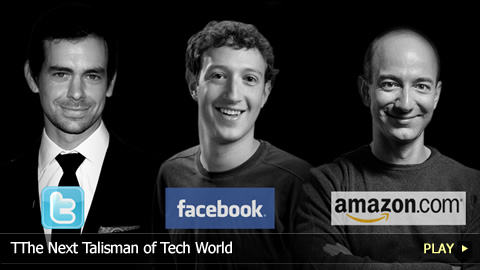The Next Talisman of Tech World

Scott Forstall, Tim Cook, Jonathan Ive
These are three important Apple Insiders. Forstall is in charge of the company’s mobile software division, and is the youngest executive at Apple. Tim Cook was hand-picked by Jobs as the company’s CEO. Ive is a design guru who is seen as the soul of the company’s ethos. The future of Apple is in good hands with these three still in the fold.
Larry Ellison, Marc Benioff
Ellison and Benioff are leaders in enterprise software, whereas Steve Jobs became an icon by commercializing consumer products that touched millions of people. It’s unlikely the media will turn to this pair to understand the future of tech.
Bill Gates
Bill Gates has the technical and business acumen, as well as the vision to be a strong voice in the tech world. However, tough critics point out that Microsoft is prone to copy others, and this makes him an unlikely candidate to take over where Jobs left off.
Michael Dell
While he has vocally criticized Apple, Dell is a wealthy and influential leader of one of the world’s largest hardware makers. But his focus on cost seems at odds with the value and quality that Jobs extolled.
Mark Zuckerberg
Like Jobs, Facebook founder Zuckerberg has a keen attention to detail and focus on simplicity. Zuck has a lot of runway to become the face of tech in the 21st century.
Sean Parker
Parker claims to have changed the world three times: with Napster, Plaxo and then Facebook. Today, he’s undoubtedly the bad boy of the tech world. With a soaring net worth and no full-time company preoccupying his attention, he can comment on any topic that draws his attention.
Evan Williams
Williams founded two leading communications platforms: Blogger and Twitter. His technical prowess and attention to product might not be up to Apple standards, but his boardroom coup to get rid of Twitter’s founder Jack Dorsey suggests he can handle himself on the business front.
Sergey Brin, Larry Page
Google is now the dominant force on the internet, and founders Brin and Page are technically unparalleled. However, some of their product launches have fizzled, and this makes analysts wonder if they have the eye for design and product details that made Jobs so successful.
Jeff Bezos
Before Jobs’ became the darling of the tech industry in the early 2000s, Jeff Bezos was considered the most likely candidate for that job. However, even then it was obvious he lacked the polish that made Jobs so masterful.
Elon Musk, Max Levchin, Peter Thiel
Since PayPal was acquired by eBay, Musk, Levchin and Thiel have spawned countless companies in tech. Time will tell if any of these three will really stand out as tech saviors.
Janus Friis, Niklas Zennström
Friis and Zennström are credited with some of the most disruptive innovations of the past decade. Joost was a disaster, and Kazaa kicked the record companies while they were down. But Skype left no doubt about the duo’s technical savvy and vision.
Marc Andreessen
As the inventor of the web browser, Andreessen made the internet user-friendly. His understanding of aesthetic and design, and his successful track record as an investor demonstrates his tech leadership skills and business savvy.
Jack Dorsey
Dorsey invented Twitter at 29 and Square at 34. These successes have helped him gain the inside track to becoming the next svengali among the technorati. He is similar to Jobs in that he was forced out of his company but eventually made a triumphant return.
Clearly, Steve Jobs left some big shoes to fill in the tech industry. However, due to the frantic pace of innovation, any of these men could leave a lasting legacy similar to his.
